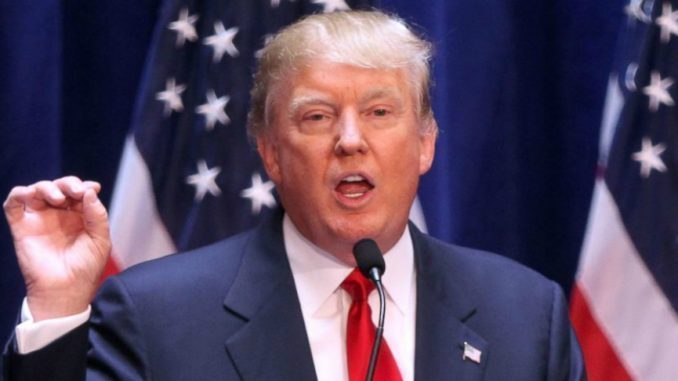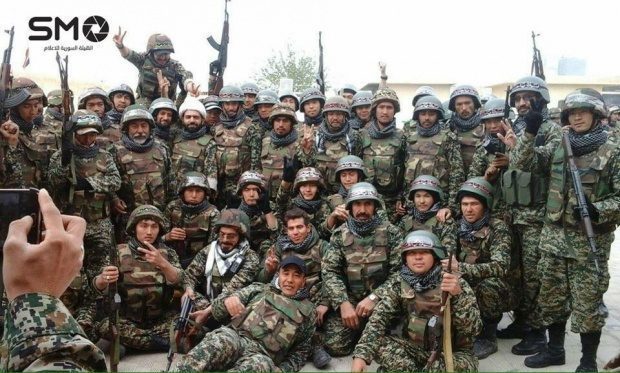
Sources in the US administration said that the US president may exclude Iraq from a list of seven Muslim-majority nations included in travel ban order, as he intends to declare the order again after his first one was blocked by courts.
Donald Trump has signed in January an executive order that will limit immigration and refugees from some Muslim-majority countries, fulfilling a campaign-trail promise to introduce what he dubbed “extreme vetting.”
The order bans Syrian refugees, claiming they are “detrimental” to the interests of the United States, and suspends the refugee admissions program for all countries for 120 days. It will also suspend the issue of visas to nationals of countries where the US believes they do not provide enough information on an applicant to decide whether or not they are a security or public safety threat.
Those countries were Iran, Iraq, Libya, Somalia, Sudan, Syria, and Yemen.
“I’m establishing new vetting measures to keep radical Islamic terrorists out of the United States of America. We don’t want them here. We want to ensure that we are not admitting into our country the very threats our soldiers are fighting overseas,” he said in a speech at the Pentagon.
However, the order was later blocked by several courts in the US.
Excluding Iraq
Defense Secretary Jim Mattis, national security adviser H.R. McMaster, Secretary of State Rex Tillerson and Homeland Security chief John Kelly all made the case to Trump to remove Iraq because of ongoing U.S. military and civilian operations in the country, according to three U.S. officials who said the Cabinet members made the case separately at recent meetings.
An administration official said the new executive order would likely exclude Iraq. Another U.S. official said the State Department was confident Iraq would not appear, while a congressional aide said Iraq would be removed following conversations among White House advisers on Tuesday.
When asked whether Iraq would be left out of the revised order, the White House said it did not have any announcements on the executive order right now.
A White House official said the order was likely to come on Monday.
Iraqis have fought alongside U.S. troops for years and have worked as translators. Many Iraqis have resettled in the United States following threats over their affiliation with U.S. troops.
The United States also relies on Iraq to provide visas for a substantial contracting force that supports the U.S. military presence.
Iraqi Prime Minister Haider al-Abadi asked Trump to lift the ban on people from his country during their first phone call on Feb. 10, resisting calls from influential pro-Iranian Shi’ite politicians to retaliate against the ban.
The previous order and its consequences
The previous order meant that about 500,000 green card holders who reside in the U.S. but are originally from one of the seven countries will need a waiver to return to their homes, White House officials said Saturday. It also applies to people from the seven countries who hold dual citizenship and are not U.S. citizens. This means that people of both French and Yemeni nationality, for example, would be denied entry.
This order created chaos in the US as many considered it unlawful and sought to stop its implementation.
U.S. District Court Judge James Robart of Seattle temporarily halted Trump’s travel ban on Jan. 27 as he considered the lawsuit. He did this by granting a Temporary Restraining Order.
Justice Department lawyers then appealed to the 9th Circuit, arguing that the president has the constitutional power to restrict entry to the United States and courts cannot second-guess his determination that such a step is needed to prevent terrorism.
Later, the appeals court said the administration failed to offer “any evidence” to justify the ban, which the president says is crucial to keep the US safe from terror attacks.
“There is no precedent to support this claimed unreviewability, which runs contrary to the fundamental structure of our constitutional democracy.”
Trump has said in response that he has “no doubt” his administration will win legal challenges to his travel ban, and his administration said they were planning to escalate the legal dispute to the Supreme Court.
“Every single court option is on the table, including an appeal of the Ninth Circuit decision on the TRO to the Supreme Court, including fighting out this case on the merits,” White House Chief of Staff Reince Priebus said.
“And, in addition to that, we’re pursuing executive orders right now that we expect to be enacted soon that will further protect Americans from terrorism.”
Anyway, Washington state Attorney General Bob Ferguson on Thursday declared “complete victory.”
He urged the Trump administration to stop pursuing the case and pull back the executive order,
“No one is above the law, not even the President,” Ferguson said at a news conference. “The President should withdraw this flawed, rushed and dangerous executive order, which caused chaos across the country.”



